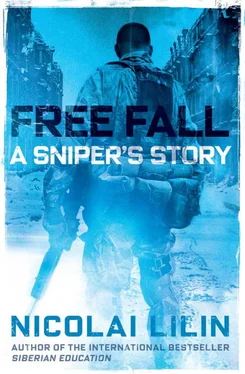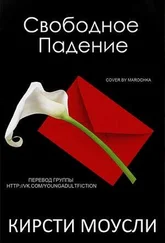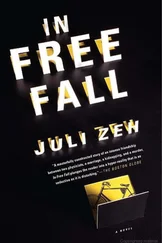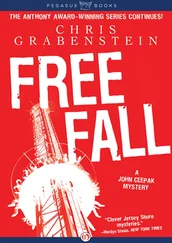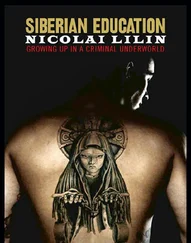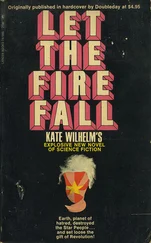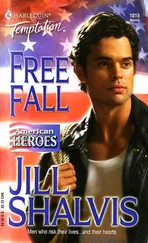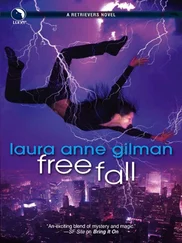Once we were outside the town we looked at what we had left behind: collapsed houses, smoke rising into the air… total destruction, as if every inch of the town no longer existed.
Nosov observed everything, a strange look on his face, neither satisfied nor dissatisfied; if anything, he seemed lost in a strong nostalgia, like when you see something for the last time.
Our captain stood firm, still, holding on to the turret of the tank. At some point he said, under his breath, to himself:
‘Anyone who doesn’t want to be under us will end up underground…’
Do evil and evil will come back to you.
Old Russian proverb
Can’t get used to the stillness
in war, in the war, in the war.
Stillness is only a trick, just a trick.
On the steep path
in a strange land
we head for the caravan. [17] The saboteurs of the Russian army, during the war in Afghanistan, used the word ‘caravan’ to indicate an enemy group transporting arms or drugs.
Caravan – the high of triumph, the pain of defeat
Caravan, I wait to meet you again
Caravan, red with the blood of Afghanistan,
Caravan, caravan, caravan…
‘Civil’ life will never grow on me,
war is so clear, it’s friend or enemy.
Here you can’t see anyone’s soul
through all the fog.
It’s a shame that friend is gone,
another one
taken for good by the caravan.
Caravan – a flask of water
without which means death.
Caravan – it means we can.
Caravan – kill the infidels, says the Koran.
Caravan, caravan, caravan.
Can’t quite get used to
no AK on my back
no mines in roadside bushes
no lurking Muslim packs.
I just know that somewhere
following in my tracks
someone’s after the caravan.
Caravan, hundreds of missiles
that will not reach their goal.
Caravan, salt in our faces
Caravan, at the third drink a moment of silence
for who is lost and who hung on.
Caravan, caravan, caravan…
‘Caravan’ by Alexander Rozenbaum
Here during the war I once met a really interesting person. Too bad that by the time we started to become friends, he was dead.
Surgeon R. Krasnov, a medical service officer I met in military hospital
The Jew knows it, the Chinaman too
the Red Army’s the best.
Berlin remembers how in ’45
it took the red star in the arse.
The boots stomp hard,
subs swim under the ice.
Fuck the guns and the gas,
we’ll take the enemy fast.
Planes roar and tanks smoke—
combat father, father combat.
From north mountains to south seas
we’ll take and break the enemies.
Combat father, father combat
from north mountains to south seas
the Red Army’s the best.
To scare off our faggot enemies,
our destroyers shoot through the skies.
Screw America, screw NATO too
even with our worst shot they’re through.
But if the enemy really steps up to us
the spetsnaz will take on the cause.
Say goodbye to your planes and your tanks
nothing will be left but their shit and socks.
Planes roar and tanks smoke—
combat father, father combat.
From north mountains to south seas
we’ll take and break the enemies.
Combat father, father combat
from north mountains to south seas.
the Red Army’s the best.
In thirty seconds our missiles can hit
anywhere on the planet.
We’ll show all those pieces of shit:
Glory to Russia, our homeland!
‘Red Army’ by the pro-nationalist punk group
Krasnaya Plesen [18] Russian for ‘red mould’.
Surely only the fish in the sea and the birds in the sky know who is right,
but we know the important things aren’t in the papers,
we’ll never hear the truth on the radio…
The name of the town doesn’t matter
but out of all those people who went there,
none of them ever came back.
So we have no reason to cry, to have sad thoughts,
now only the heart can save us, because reason fell short.
But the heart needs sky and roots, it can’t live in nothing,
and as once said a boy who was there by chance,
‘From this moment on we’ll be different…’
From Boris Grebenshikov’s ‘Captain Voronin’
On my shoes the dust of hundreds of streets,
on my shoes the ash of hundreds of wars,
my hands have turned to dirt…
I’m coming home.
From ‘I’m Coming Home’ by Russian singer-songwriter O. Balan
At the end of my second year of military service the saboteur unit transferred to the mountains. Along with some of the Ministry of Internal Affairs’ special units (called the OMON), we went through the villages to conduct what in our operation order was called ‘clean-up of residential areas’. Obviously this had nothing to do with maintaining sanitation in the mountain territories; it was a very specific and sensitive phase of the counter-terrorist operation intended to ‘re-establish respect for the laws of the Russian Federation’.
We went through the areas controlled by federal forces in order to ‘ensure the presence of the necessary conditions to enable the recuperation of the Chechen community’. It was May, and it was very hot.
By that time, the Chechen plain had been almost completely liberated of enemy forces, but many terrorist groups had survived in the mountains. They had regrouped into small units and continued to attack our military convoys and put any representative of the law to death. They terrorised civilians, too, but more often found them to be sources of support in the fight against the Russian Army and state power. Many families had lost someone during the war and blamed the army for their losses, which is why they gave provisions to terrorists, harboured them secretly or hid arms and ammunition. To us, the Chechen mentality was incomprehensible – it seemed absurd for them to help foreigners from Africa or the former Yugoslavia but to want nothing to do with us, their neighbours, with whom, for better or worse, they had a shared history. They saw the terrorists as heroes, as people who had sacrificed themselves for the good of the Nation – Muslim Robin Hoods.
Obviously we soldiers knew that both Chechen campaigns had been tainted by political and economic interests. As Captain Nosov had often told us, practically branding it into our minds: ‘Always remember that the feared Shamil Basayev, like many other Chechen Islamic terrorist leaders, was trained by our own secret services – we Russians were the ones who taught him to defend himself.’ We had learned from experience how the terrorists were linked to the corrupt officials working in our Command, but no one ever dared to bring up those stories; no one ever released the findings from the investigations conducted by the FSB. If we found out that there was a mole it was because of his comrades, who had reported him or in some cases simply eliminated him, since accidents happen in war every day anyway. These affairs, even if they didn’t reach the ears of the media, circulated widely among soldiers and officers. They were shared in whispers, during pauses between one battle and the next. Often the whispers were about an officer from Command dying in an accident: ‘He fell from a moving tank,’ they would say, which meant that he had been beaten to death by his own men. These stories were always concluded with a statement full of scorn and malice, spat out with cigarette smoke: ‘He liked shawarma [19] A common dish from the Caucasus, similar to kebab – this was a way of referring to traitors.
too much…’
Читать дальше
